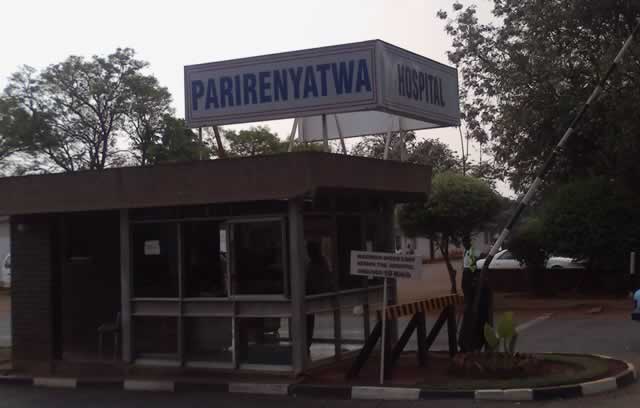Rhodes’ legacy in Zim’s history

Sekai Nzenza On Wednesday
In the Eastern Highlands, the Rhodes Nyanga Hotel is a beautiful place where you can enjoy an English type lunch, visit the museum and see some of Rhodes’ personal items. You can also go bird watching in peaceful surroundings. You would not believe you are in Zimbabwe, a country still viewed by some Westerners as a scary place to visit.
“WE cannot run away from our history,” said my cousin Reuben, talking to guests at the Valentine ’s Day barbecue at our house more than a week ago.
“Cecil John Rhodes came here, conquered the country, named the country after himself and he is buried at Matopos. Now some crazy students at Oxford University want to pull his statue down. They think that takes away the history of the past.”
Reuben was busy stirring his three legged pot of mazondo, cow trotters, on the fire and adding more salt and chilli.
My cousin Reuben normally lives in Australia. He has decided to come back home and do business, maybe in farming, mining or real estate. Reuben has many ideas regarding his future and where he should live. The truth is, he has never been happy living in the Diaspora.
He is the type who prefers to live in Zimbabwe and go overseas often.
But his wife, Mai Tinashe, has no interest whatsoever of coming back to live in Zimbabwe.
She says she is done with the hardships of no electricity or water.
Among our guests were Mai Tinashe’s relatives, including her brother Tich, the businessman with several trucks that travel through South Africa, Zambia and Zimbabwe. His wife, a school teacher, was also at the barbecue, helping my cousin Piri to cook sadza and vegetables, while Philemon roasted meat.
I sat near the barbecue stand, holding baby Prince on my lap.
Earlier on, we had been talking about love and Valentine’s Day.
Then this whole subject of Cecil John Rhodes came up because the controversy about Cecil’s statue at Oxford University was global news.
At first, my cousin Piri thought we were talking about Cecil the Lion who made headline news last year when an American dentist paid $50 000 to hunt him down and take him to America as a trophy.
There was a global outcry. Even those who had never heard of Cecil cried. How could anyone be so cruel to shoot Cecil the Lion in cold blood?
“The name Cecil is part of our history guys, there is nothing you can do about it. Cecil John Rhodes, akauya, akaba nyika, akagova nyika, vanhu vake vakauraya, iye kuda akaurayawo, akaita mari, akafa, akavigwa munyika menyu macho,” said Reuben laughing, meaning Rhodes came, stole the country, gave away the country, his people killed our people, he made money, he died and is buried right here in our country.
Tich, sipping his third or fourth glass of whisky on ice, said we Zimbabweans are too forgiving. “We should never have let Cecil Rhodes’ statue and grave stay here after what he did to the country,” Tich said.
Others disagreed strongly, saying history is history, we cannot wash it away.
“I remember learning something about Rhodes in school. But he died a long time ago. So why do we keep talking about him?” asked Piri, dishing out the sadza to everyone. Sometimes Piri catches the tail end of conversations and adds what she thinks.
“Tete, kana musingazive History nyararai,” said Shamiso, meaning, Piri should keep quiet if she does not understand the subject of history.
“Iwe, learning does not end. Some of us did not stay long in the classroom to understand History,” said Piri. Others laughed. Tich’s wife said Piri was right in wanting to learn.
“So, what difference does it make if you learn about Cecil Rhodes now?” asked Shamiso.
“Iwe, leave Tete Piri alone. History is part of you. You are nobody if you do not know how you came to be here and how other people affected your past,” said Reuben.
During the past few weeks, I have been following the whole debate about Cecil John Rhodes and how a student movement at Oxford University started a Rhodes Must Fall campaign. The students argued that Cecil Rhodes was the greatest empire builder of all time, a megalomaniac and a staunch racist. He made a lot of money from fraudulent mining and land claims. The biggest theft was committed when he cheated Lobengula into signing the Rudd Concession.
King Lobengula succeeded his father Mzilikazi in 1870. At the height of his power Lobengula commanded an incredible army modelled similar in discipline and structure to that of the great Shaka the Zulu.
Many prospectors, traders and hunters were moving rapidly up north from Johannesburg, crossing the Limpopo River looking for gold.
At first, Lobengula was friendly to the missionaries, hunters and prospectors, thinking they were just visiting.
He allowed the London Missionary Society to establish centres near his capital at Bulawayo. But Lobengula’s friendship to the European visitors did not last long when he realized that they wanted to take over the land and the minerals.
Meanwhile, in 1888 Cecil John Rhodes was making plans to move into Matabeleland following his dream of expanding the British empire from the Cape to Cairo.
At that time, he was already the managing director and the largest shareholder in De Beers. He wanted to quickly make a mining or lands concession with Lobengula. Cecil Rhodes then sent some men, led by Charles Rudd, a member of De Beers and also known as an expert in managing mining claims.
Under the Rudd Concession, Lobengula and his successors were to receive shipments totaling 1000 Martini-Henri rifles and 100 000 cartridges, gold sovereigns, an armed steamboat and other goods.
In exchange, the king gave an exclusive mineral concession “together with full power to do all things that they may deem necessary to win and procure the same.”
Lobengula did not receive most of what was promised to him.
In simple terms, Lobengula was cheated and that is how the country was taken by Cecil John Rhodes and his British South Africa Company. Lobengula, the once powerful Ndebele king, was duped into signing the infamous Rudd Concession.
According to historical records, the flag was attached to a Musasa tree and erected in the middle of the Cecil Square on the morning of September 13, 1888.
Three years later the Union Flag was raised at Bulawayo, on November 4 , 1893.
Cecil John Rhodes had taken over this country and called it Rhodesia, after his name. He controlled vast amounts of land and minerals.
Rhodes died in March 1902, aged just 49. His last words were recorded as follows: “So little done, so much to do.” Since then his legacy in education includes a famous scholarship that carries his name. You hear of men referred to as Rhodes Scholars. Among them are a former Australian prime minister, Tony Abbott and former US President, Bill Clinton.
Last year in South Africa, a student called Chumani Maxwele started a campaign to get the Rhodes statue removed from the University of Cape Town, saying Rhodes was a racist and a murderer. The statue was removed by the university.
Two weeks ago, Oxford University resolved to keep the Rhodes statue standing. They said removing it would have angered those who give money to the university under the Rhodes Trust. Also, what would the beneficiaries of the Rhodes scholarships say? The New York Times on January 29, 2016, said: “For months, the authorities at Oxford University have struggled with an awkward dilemma over the fate of a statue of Cecil Rhodes, an imperialist benefactor seen by many as an architect of apartheid.
“Now, after a vigorous debate, Oriel College, one of 38 largely self-governing colleges at Oxford, has decided it will keep the monument to its famous, if divisive, former student.”
Back here in Zimbabwe, the Rhodes statue was removed from Cecil Square, now Africa Unity Square, soon after independence. It was not defaced or demolished. The statue stands today, like a ghost from the past, at the back of the National Archives.
In the Eastern Highlands, the Rhodes Nyanga Hotel is a beautiful place where you can enjoy an English type lunch, visit the museum and see some of Rhodes’ personal items. You can also go bird watching in peaceful surroundings. You would not believe you are in Zimbabwe, a country still viewed by some Westerners as a scary place to visit.
“You see, memories of Rhodes remain with us,” said Reuben. “We cannot touch his grave. The Europeans come from all over the world to pay homage to him at Matopos. We need that tourist dollar.”
“Eeka, why should they not visit their ancestor?” asked Piri.
Then there was a heated argument among us, some people saying Rhodes should be forgotten once and for all. In the end, most people seemed to agree with Tich’s wife, the teacher.
She said, “You see, taking Rhodes away from the public areas is a good thing. It means we do not want to celebrate him, or to be reminded of the evils committed by this man. But we cannot take him out of our history.”
Dr Sekai Nzenza is a writer and cultural critic.









Comments